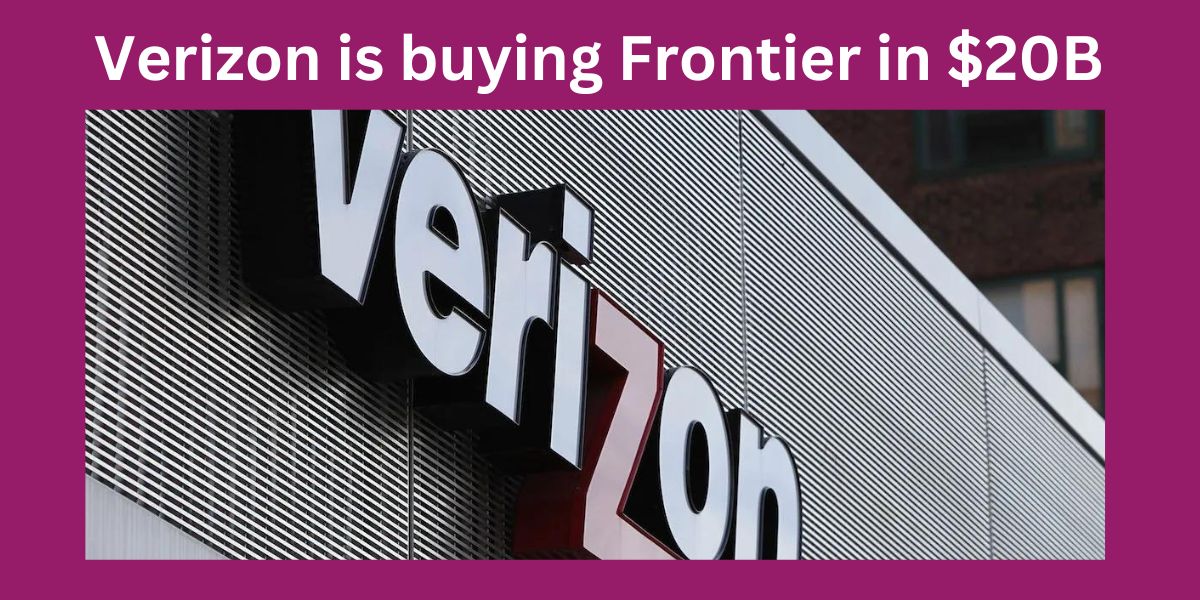The telecommunications world is buzzing with big news—Verizon is set to acquire Frontier Communications for a staggering $20 billion. The move, one of the largest in recent years, is expected to reshape the landscape of broadband services in the United States. This deal isn’t just about numbers or a flashy headline—there’s a lot more at stake. From enhancing network quality to expanding fiber internet, Verizon’s acquisition of Frontier could mean better service, faster internet, and more competition. Let’s dive into the details of this monumental transaction and what it means for everyone, from tech enthusiasts to everyday internet users.
What Does This Acquisition Mean?
Verizon’s Growth Strategy
For years, Verizon has been eyeing ways to expand its infrastructure, especially in areas where it has less presence. This acquisition of Frontier aligns perfectly with Verizon’s growth strategy to widen its reach and improve its services. Frontier has an extensive network, particularly in rural areas, which has been underperforming but holds great potential. Verizon’s investment could transform that untapped potential into a competitive advantage.
Why Frontier?
Frontier Communications has been a key player in the broadband and telecom industry for years, serving primarily rural and suburban areas. However, it has faced struggles recently, including a bankruptcy filing in 2020. With outdated infrastructure and increasing competition, Frontier has been looking for ways to revitalize its business. Verizon saw this as the perfect opportunity to inject new life into Frontier’s operations while strengthening its fiber-optic network.
A $20 Billion Deal: Why So Expensive?
At first glance, $20 billion sounds like a massive sum. But when you break it down, it becomes clear why Verizon is willing to shell out this kind of money. Frontier holds valuable assets, especially its fiber-optic network, which is crucial for providing high-speed internet. As consumers demand faster connections and more reliable services, the value of fiber-optic networks skyrockets. Verizon is essentially buying access to an expansive network that will take years, if not decades, to fully build from scratch.
How Will This Deal Benefit Verizon?
Expanding Fiber-Optic Reach
One of the key reasons for this acquisition is Verizon’s desire to expand its fiber-optic reach. Frontier’s network spans several states, many of which are underserved by high-speed internet options. By purchasing Frontier, Verizon can accelerate its fiber network deployment, allowing it to offer faster internet to more homes and businesses across the country.
Boosting Verizon’s 5G Ambitions
Fiber-optic cables are the backbone of 5G networks. With more fiber infrastructure, Verizon can support faster, more reliable 5G connections. As the race for 5G supremacy heats up, this acquisition could give Verizon a significant edge over competitors like AT&T and T-Mobile.
Improving Customer Experience
Verizon is known for its high-quality customer service, and integrating Frontier’s operations could bring much-needed improvements to Frontier’s customer base. Frontier has struggled with service issues in the past, but with Verizon’s resources and expertise, customers can expect better support, faster internet speeds, and fewer service outages.
What Does This Mean for Frontier?
A New Lease on Life
For Frontier, this deal is a lifeline. After struggling with financial issues and negative customer feedback, the company has been looking for ways to revitalize its business. Verizon’s acquisition will likely bring much-needed upgrades to Frontier’s network and operations.
Focus on Rural Areas
Frontier’s primary market is rural America, where internet options can be limited. Verizon’s investment will allow Frontier to upgrade its services and provide better, faster internet to customers who may have had to settle for subpar connections in the past.
Job Opportunities and Economic Growth
The acquisition could also create new job opportunities. Verizon will need skilled workers to upgrade and maintain Frontier’s infrastructure, which could boost local economies, particularly in rural areas where Frontier operates.
The Impact on Customers
Faster Internet Speeds
One of the most immediate benefits of this deal for customers is the potential for faster internet speeds. Frontier’s current infrastructure has been lacking, especially when compared to Verizon’s cutting-edge fiber-optic network. Verizon’s acquisition means that customers in Frontier-served areas can expect faster, more reliable internet in the near future.
Better Service and Support
Frontier has been criticized for poor customer service and unreliable internet. Verizon’s acquisition could change that. Verizon has a solid reputation for customer service, and as it integrates Frontier’s operations, customers could see improvements in everything from service response times to network reliability.
Will Prices Go Up?
Whenever there’s a major acquisition, customers often worry about price increases. While it’s too early to predict exactly how this will play out, Verizon’s scale could help keep prices competitive. By upgrading Frontier’s infrastructure, Verizon may be able to offer faster speeds at similar or even lower prices, especially in underserved areas where competition is limited.
Industry Reactions
Competitors on Alert
With Verizon expanding its fiber network, competitors like AT&T and Comcast will need to step up their game. The deal puts Verizon in a stronger position in markets where it previously had little or no presence, forcing its rivals to reconsider their strategies.
What Analysts Are Saying
Industry analysts are largely positive about the deal, seeing it as a win-win for both companies. Verizon gains access to an expanded network and new customers, while Frontier gets the financial backing it needs to upgrade its infrastructure.
Potential Risks
Of course, there are risks involved. Integrating a company as large as Frontier won’t be easy, and Verizon will need to carefully manage the transition. Frontier’s network will need significant upgrades, and there could be challenges in merging the two companies’ cultures and systems.
The Bigger Picture: What This Means for the Telecom Industry
Fiber Is the Future
This acquisition underscores the importance of fiber-optic networks in the future of telecommunications. With more and more services moving online, from streaming to remote work, the demand for fast, reliable internet is skyrocketing. Fiber-optic cables provide the speed and bandwidth necessary to meet that demand, making them a valuable asset for any telecom company.
More Competition in Underserved Areas
By acquiring Frontier, Verizon is expanding its footprint into areas where competition is limited. This could lead to more choices for customers in rural and suburban areas, who may have previously had only one or two internet providers to choose from.
How Long Will the Transition Take?
A Gradual Process
Acquisitions of this size don’t happen overnight. The transition process will take time, and it could be months or even years before customers see significant changes. Verizon will need to carefully manage the integration of Frontier’s network and operations to ensure a smooth transition.
What Customers Should Expect
During the transition, customers may experience some hiccups as Verizon works to upgrade Frontier’s infrastructure. However, in the long run, they can expect faster, more reliable internet and better customer service.
Conclusion
The $20 billion acquisition of Frontier by Verizon marks a major shift in the telecom landscape. For Verizon, it’s a chance to strengthen its fiber network and expand its reach into new markets. For Frontier, it’s a lifeline that will bring much-needed upgrades to its aging infrastructure. And for customers, it promises faster internet, better service, and more competition, particularly in underserved areas. While the transition will take time, the long-term benefits of this deal could be significant for everyone involved.
FAQs
Q1: Will Verizon change Frontier’s internet plans?
A: It’s likely that Verizon will offer new plans and upgrade existing ones as it integrates Frontier’s services. Expect faster speeds and more options in the near future.
Q2: When will customers start seeing changes?
A: The transition could take several months or longer. However, Verizon will likely begin upgrading Frontier’s network soon after the deal is finalized.
Q3: Will Frontier customers need to switch equipment?
A: In some cases, Verizon may require customers to upgrade their modems or routers to access faster speeds, especially in areas getting fiber-optic upgrades.
Q4: How will this deal affect competition in the telecom industry?
A: Verizon’s acquisition of Frontier will increase competition in rural and underserved areas, potentially leading to better deals and services for customers.
Q5: Could this deal lead to a price hike?
A: While price increases are always a possibility, Verizon’s scale could help keep prices competitive, especially if they improve network performance in underserved areas.










